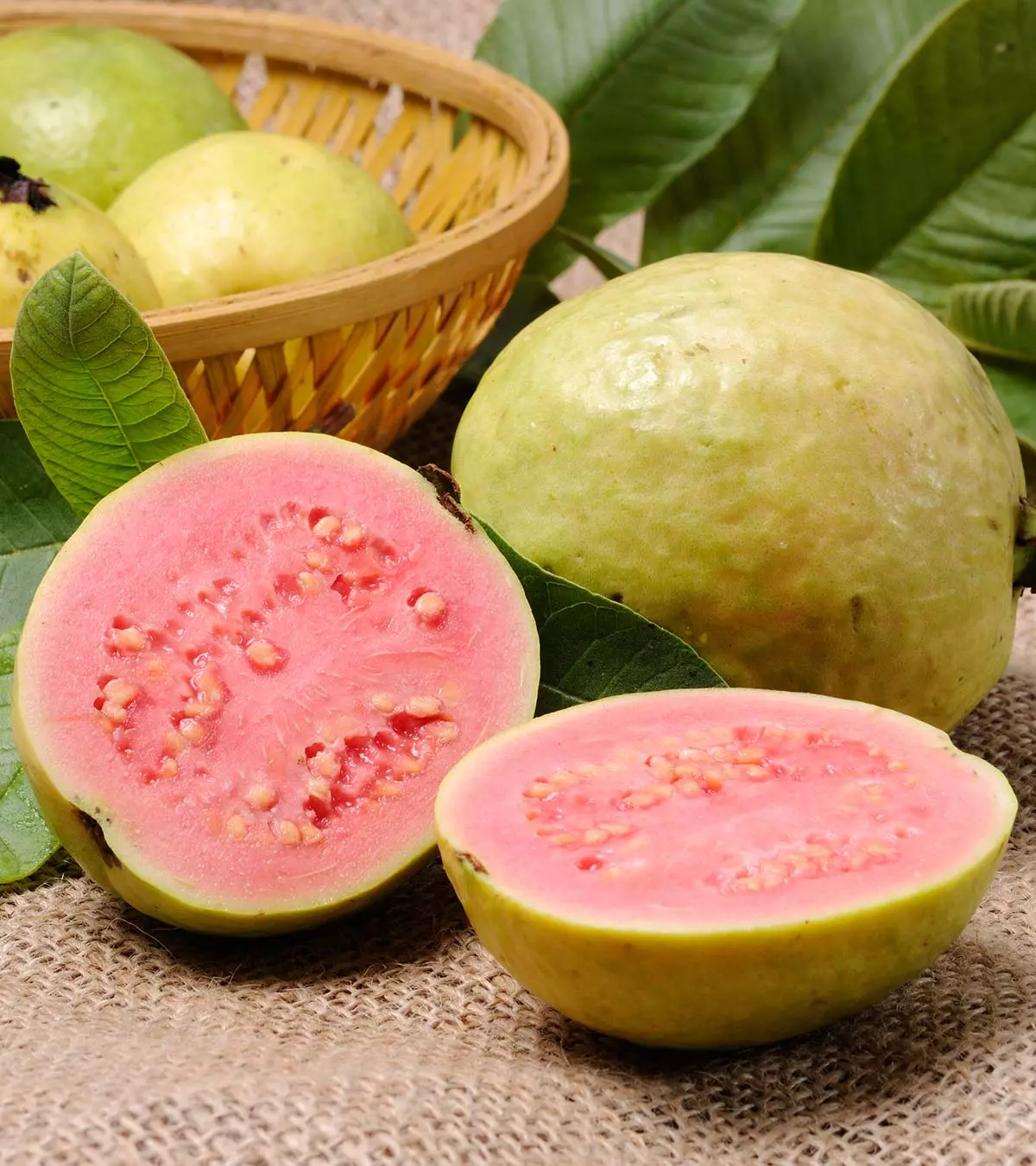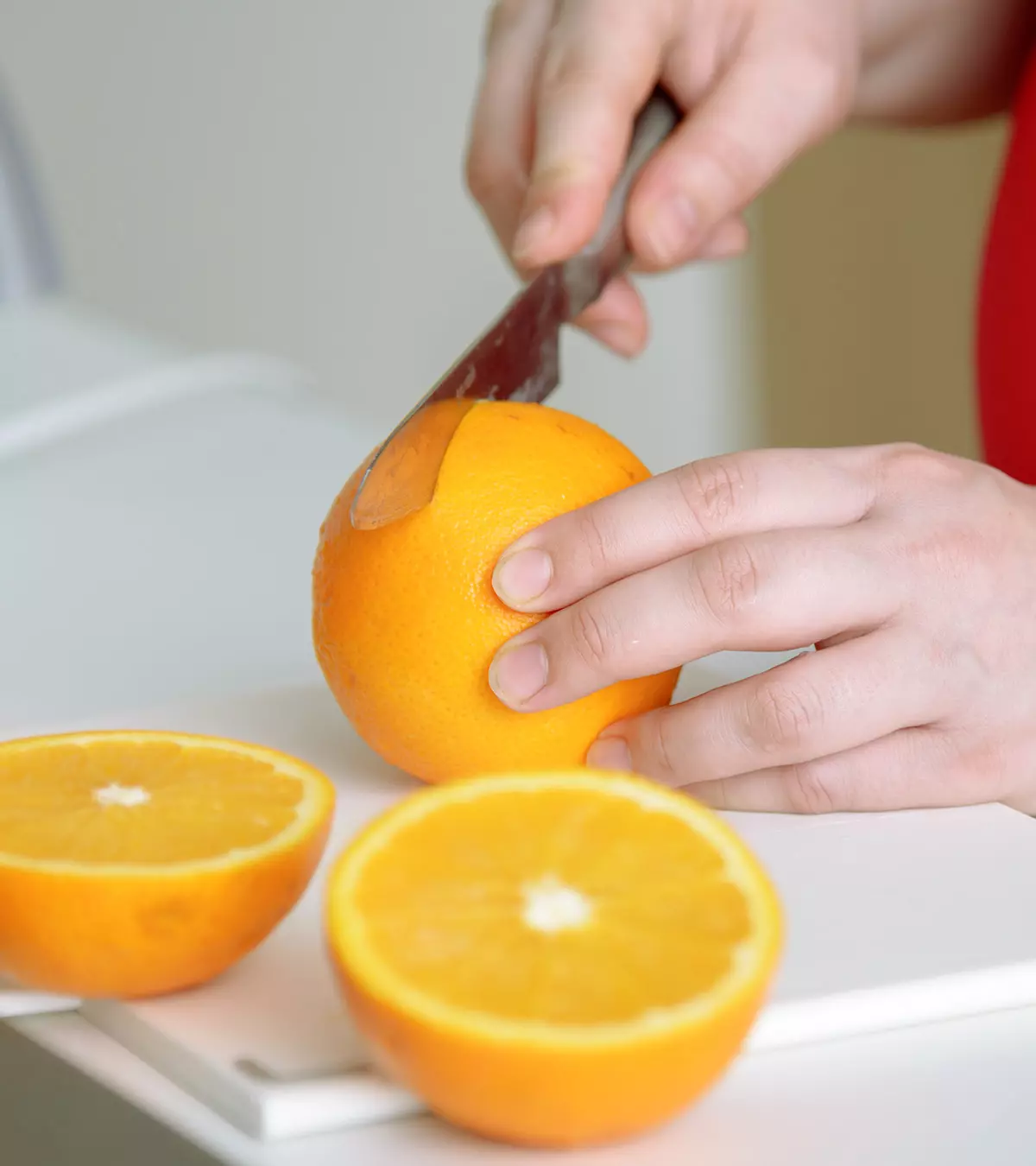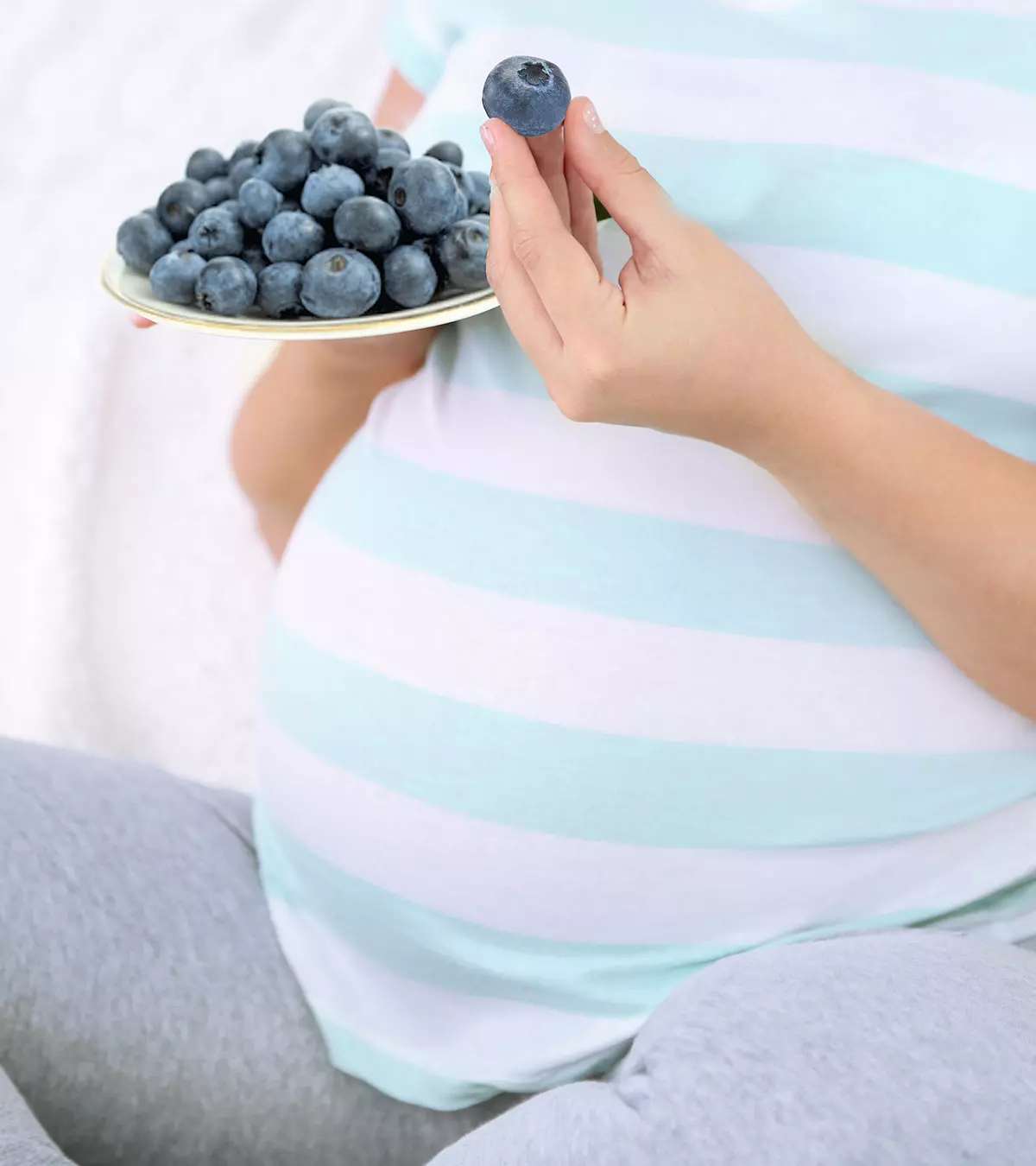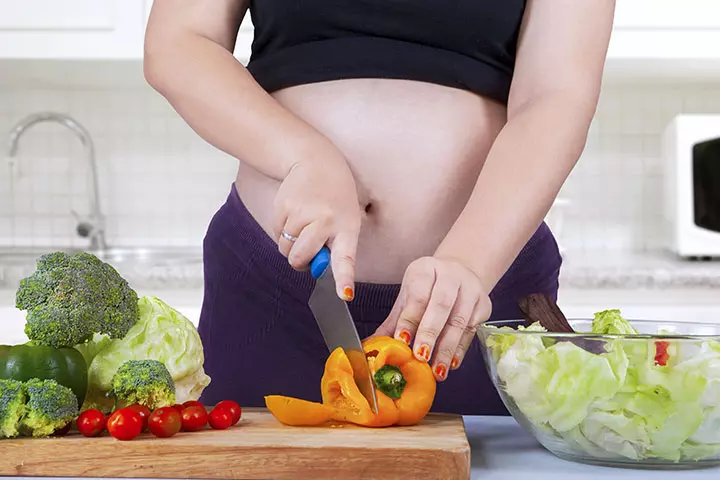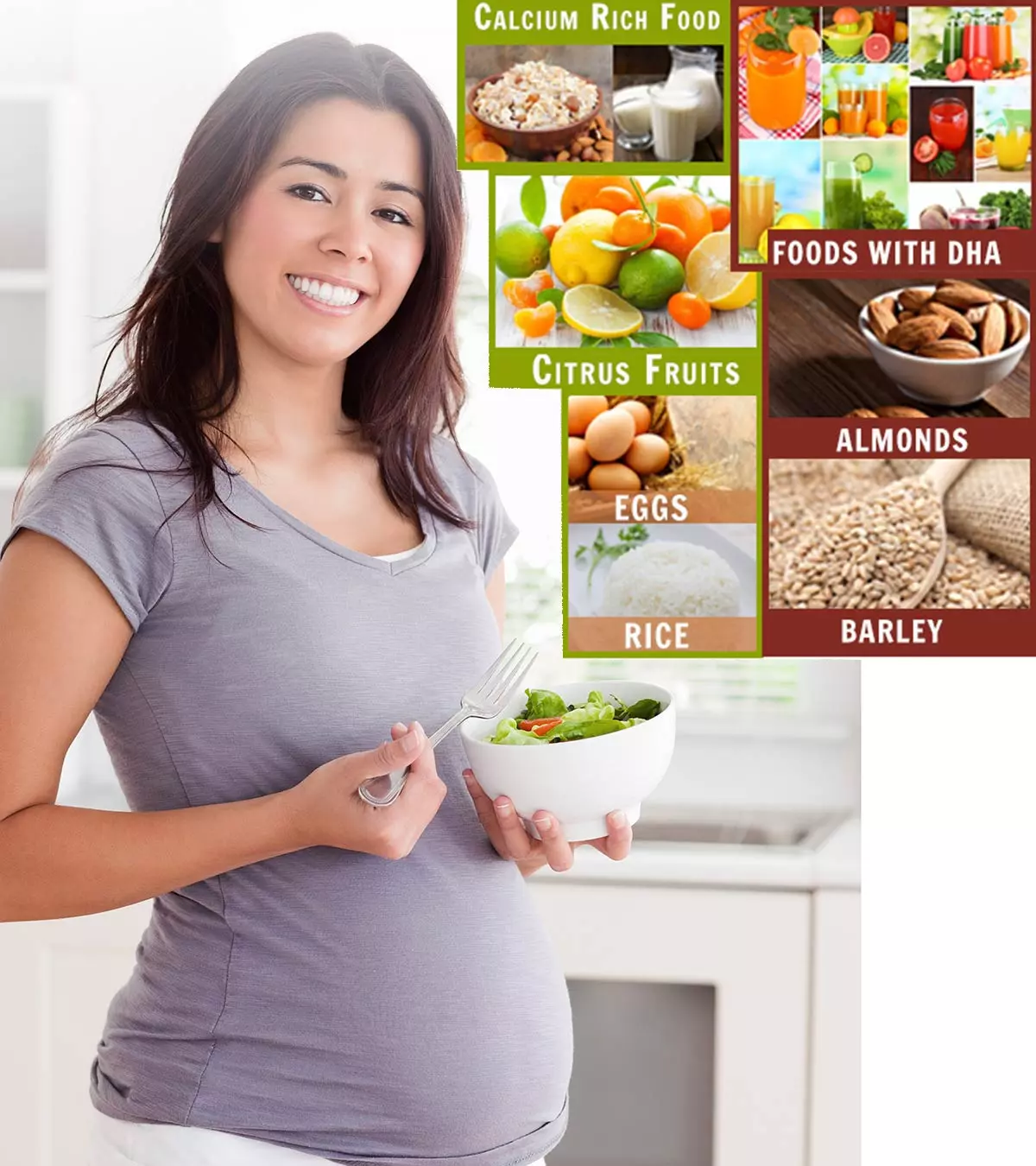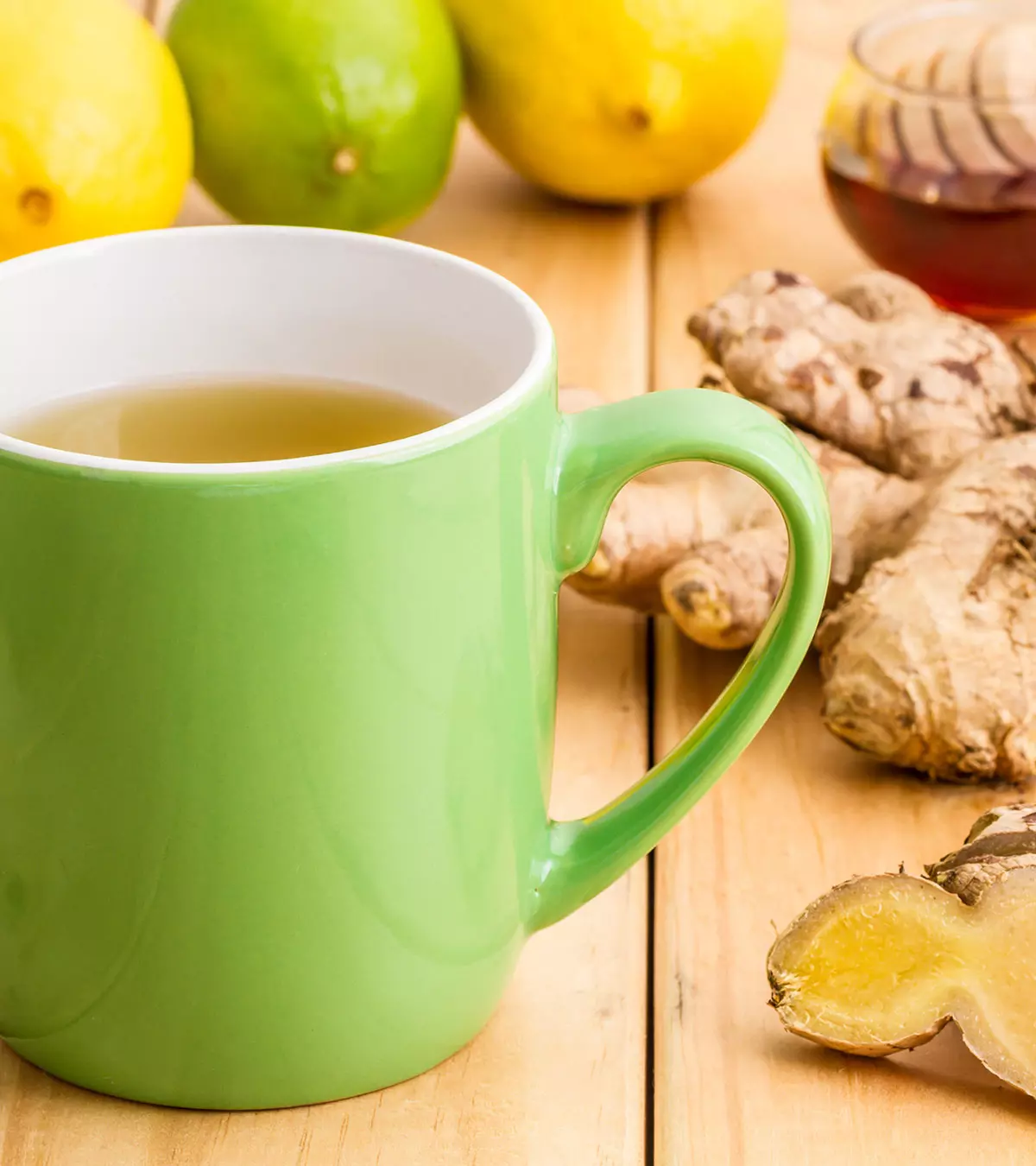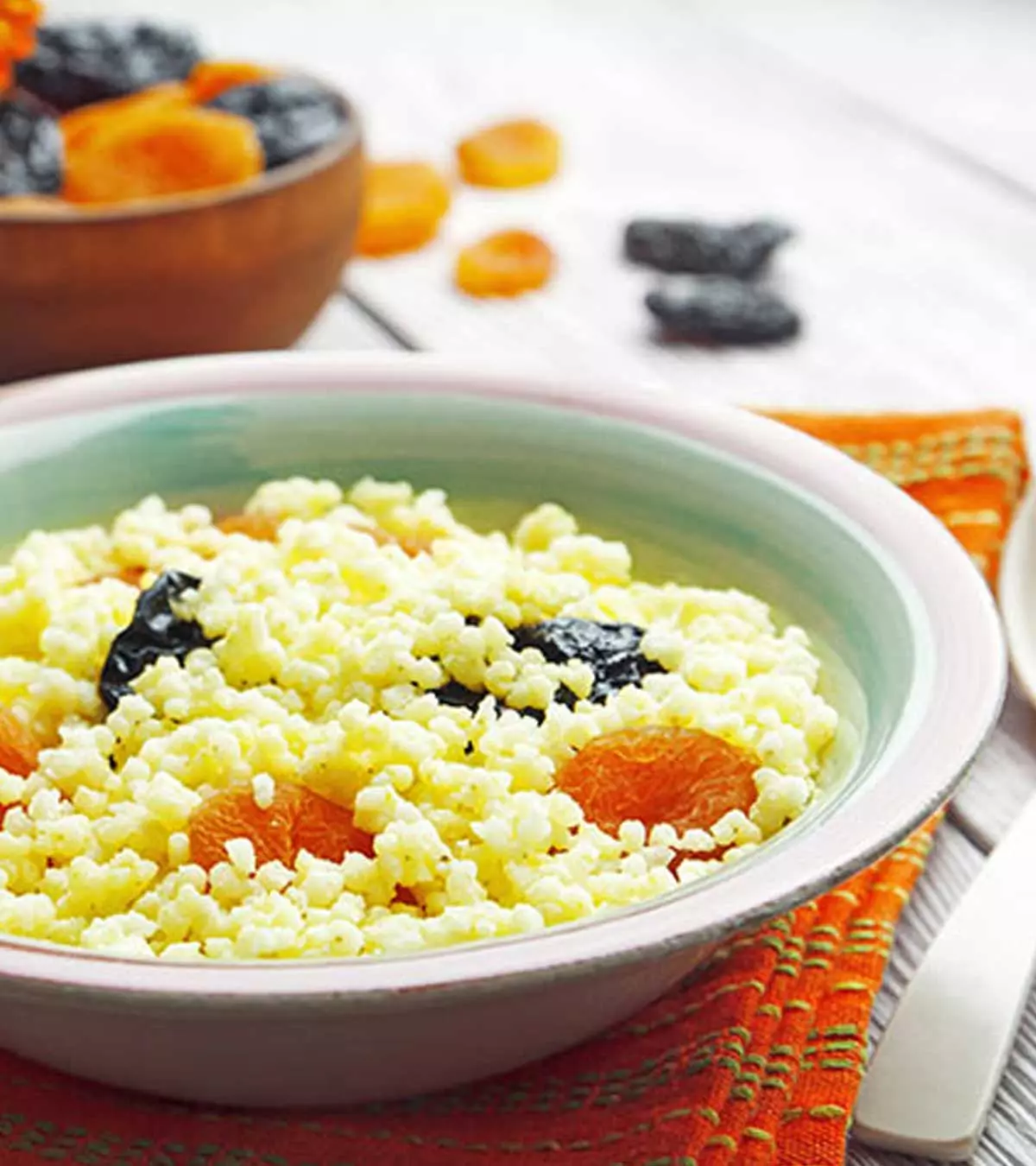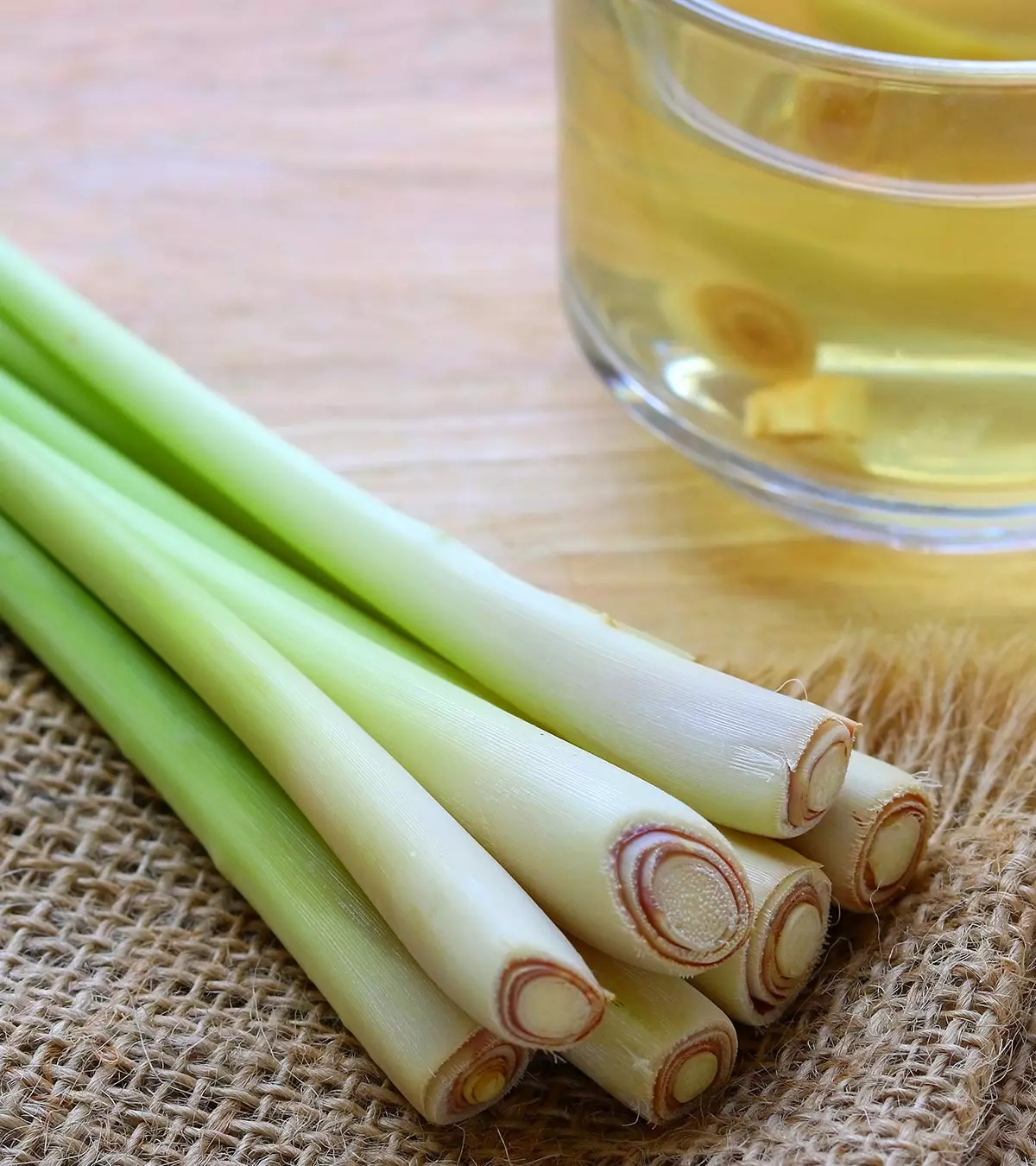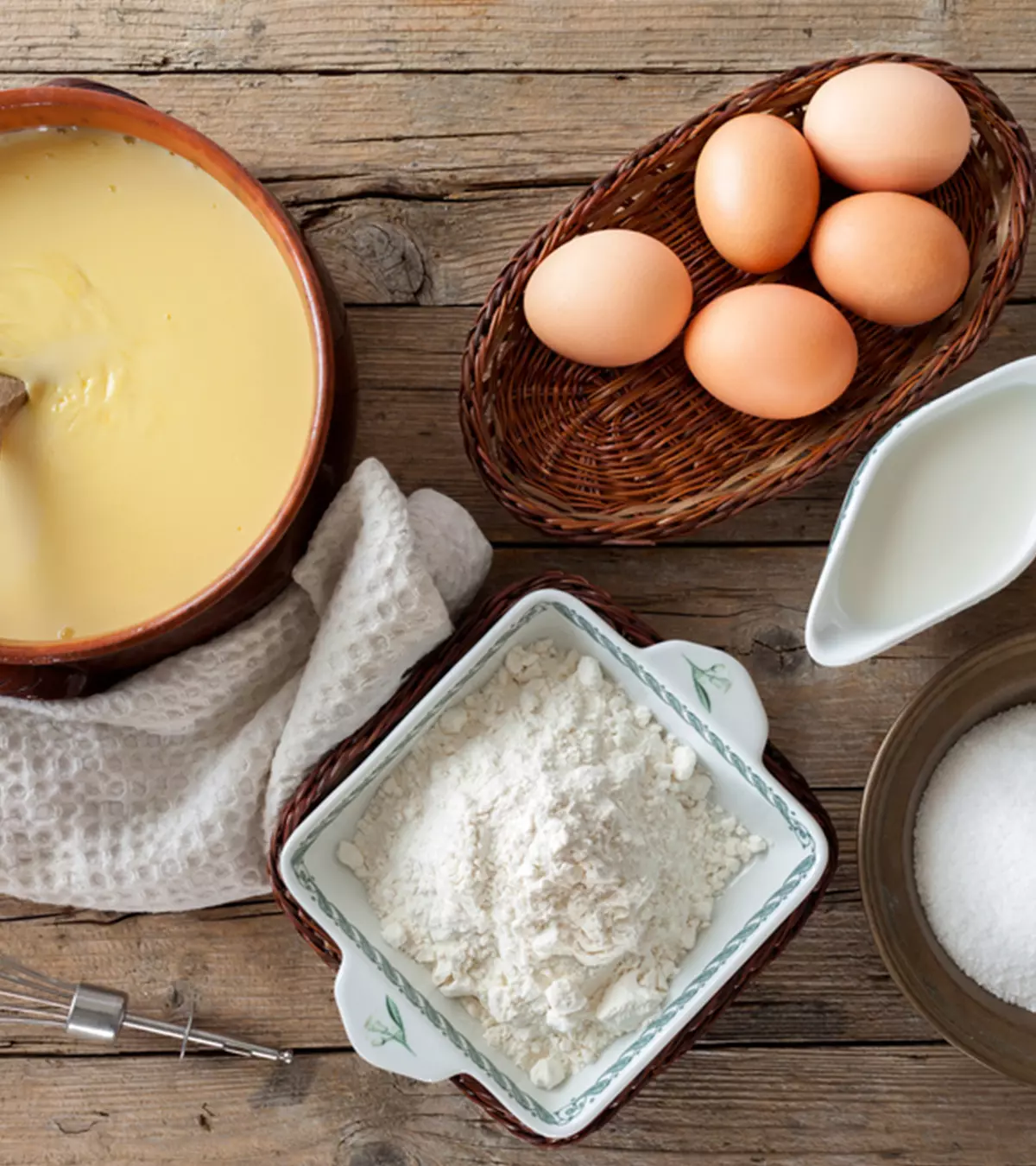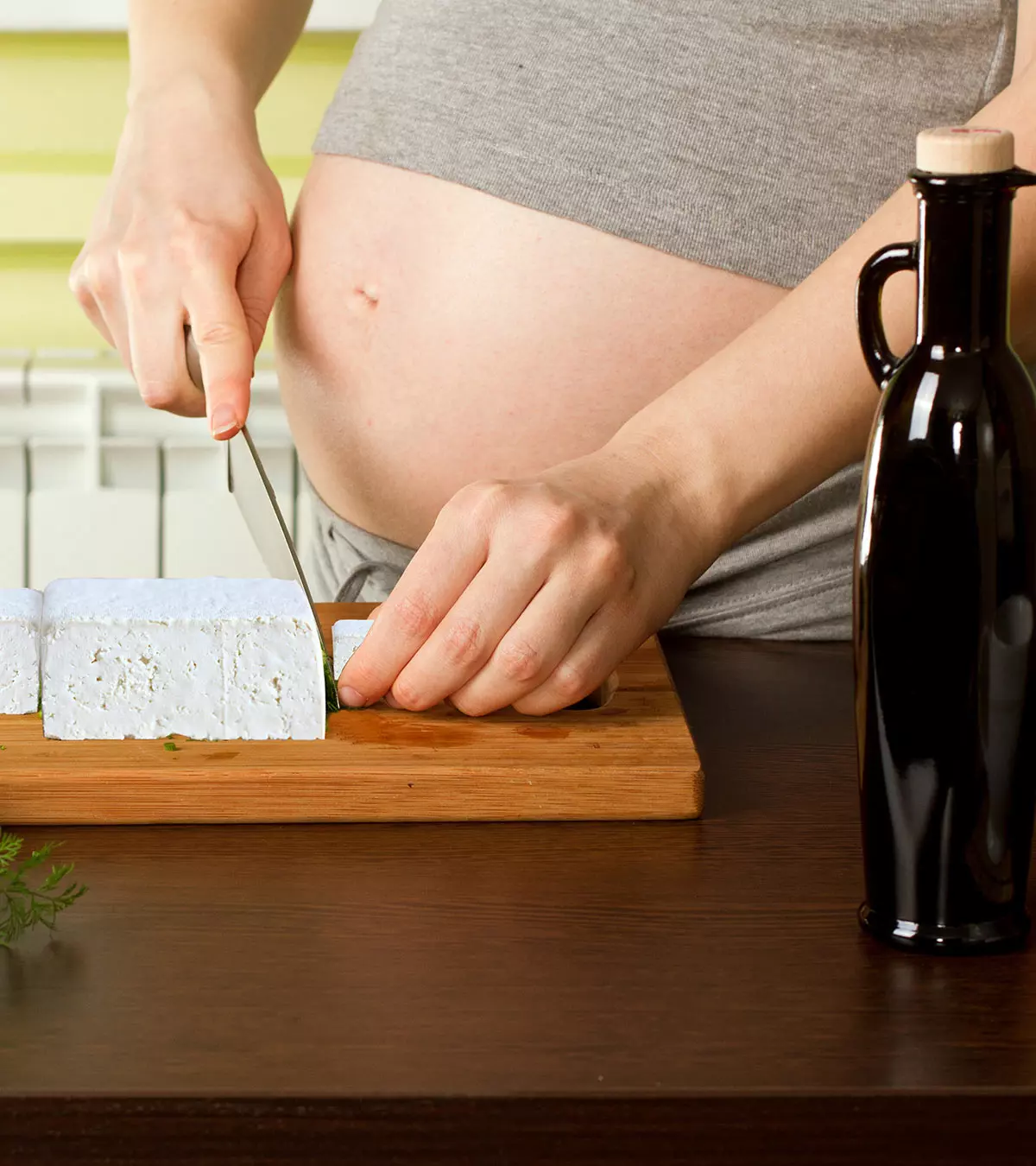
Babies can be fussy eaters. And if you think your baby falls into this category, this post on high-calorie foods for babies is for you.
If your baby has started having solids but refuses to eat most of the food you give them, it might affect their growth and development. In such cases, foods that contain high calories might be the right choice for them. These foods can provide them with the required nutrition and bring a difference to their taste. Some examples of high-calorie foods include meat, fish, eggs, and cheese.
Read on to know more about high-calorie foods you can give to your baby.
Key Pointers
- Babies can obtain the required nutrition and enhance their growth and development by consuming high-calorie foods.
- Examples of high-calorie foods suitable for babies are avocado, cheese, eggs, and oil.
- Increasing calorie intake for babies can be achieved by adding full-fat dairy, eggs, butter, and nutritious ingredients like wheat germ to their meals.
- Bananas and sweet potatoes are also beneficial high-calorie options for babies.
Nutritional Guidance For Parents
Every baby has different health and growth requirements. Hence, it is better to get a professional opinion. You can get a diet plan that can support your infant’s development without feeding them surplus calories. High-calorie foods such as avocados and nut butter can be beneficial for babies. However, the portions and timing should be carefully considered.
10 High Calorie Foods For Babies
Here is our pick of ten high-calorie foodstuffs you may consider in case your baby is not gaining weight with a traditional diet.
1. Avocado Is The Way:
Avocado is loaded with calories and is one of the best ways to make sure your baby gets their dose of calories for the day (1).
- It is filled with nutrition and is packed with healthy fats. The best part about avocados is that it is very easy to prepare.
- You can serve avocado directly from the skin by spooning it out and feeding your baby. Alternatively, you can try avocado baby food recipes or make it into a mash or puree by mixing infant formula or breast milk.
- You can also mix avocado with other vegetables or fruit purees for babies like bananas or tofu. Another great way to use avocado is by making it into a dip.
 Quick fact
Quick fact2. Say Cheese:
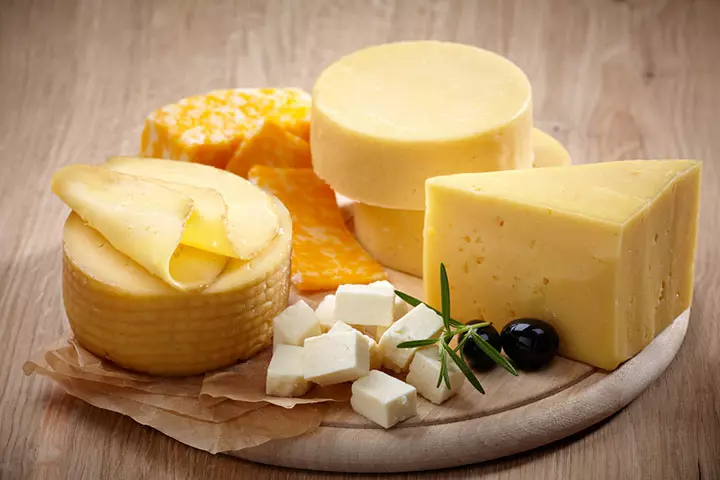
You can easily include cheese in your baby’s regular diet plan and ensure your baby gets a high dose of calories and taste (2).
- Add grated cheese to your baby’s cooked, boiled, mashed, or pureed vegetables. In case your baby loves cheese and does not like vegetables, they may even want to eat them for the cheese!
- Make a bowl of scrambled eggs for your baby and add a dash of cheese before serving. You can also add grated cheese to your baby’s bowl of mashed potatoes or boiled pasta.
- Instead of always using butter for babies, add full-fat cheese cream to their regular foods and meals.
 Quick fact
Quick fact3. Milk It Up:
If you have started your baby on top feed milk, now is the time to milk up the fat content (3).
- Ensure that all the dairy content you use is made of full-fat milk.
- Make delicious smoothies and shakes by adding fresh fruits to full-fat milk.
- You can also make oats, cereals, and even sauces using fresh full-fat milk for your baby.
4. Oiling And Buttering:
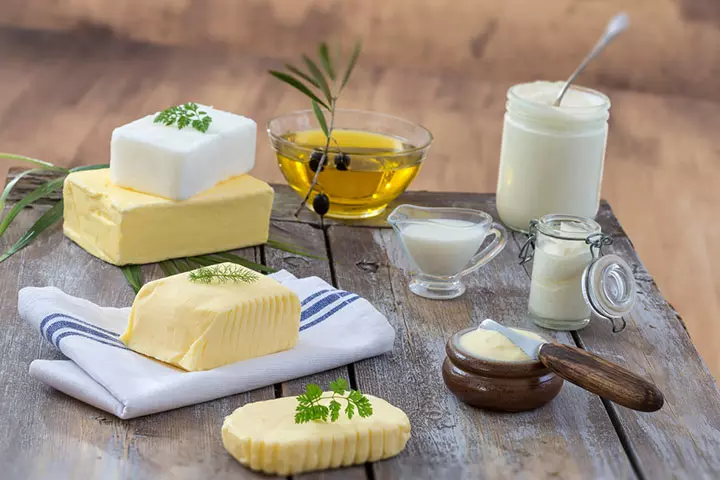
Oils and butter can add a big dose of healthy calories to your baby’s daily diet (4)
- Include olive oil in your baby’s various food items like sautéed vegetables, boiled veggies, pasta, and more.
- You can also sauté them in unsalted butter or add them in mashed sweet or regular potatoes.
- If your baby is ready to have it, you can also add flaxseed or linseed oil to your baby’s food.
5. Egg Is The Way:
Egg yolk is iron-rich and loaded with nutrition that will add a lot of high calorific content to your baby’s food routine (5).
- Cook the egg yolk to make its nutrition content higher. It will help in the development of your baby’s brain.
- You can add a cooked egg yolk to your baby’s pureed food.
- You can also add it directly to your baby’s stews and soups.
6. Weighty Wheat Germ:
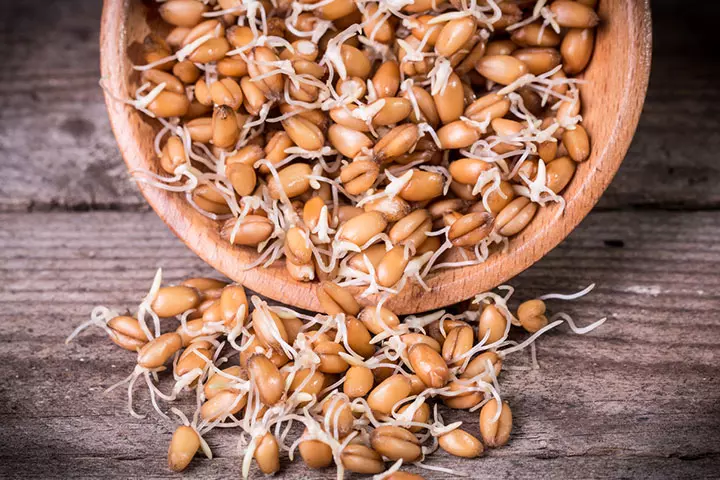
Wheat germ is highly nutritious and is a great way to add high-calorie content to your baby’s food (6).
- You can mix wheat germ with any baby food that you prepare.
- Add it to your baby’s sweet or regular dishes to make it extra healthy.
- You can also add it in various purees, baby cereals, and even finger foods to add taste and nutrition.
7. Sweetly Potato:
This is also one of the best high calorie foods for babies. Sweet potatoes have many health benefits, one of which is adding weight to your baby (7).
- Sweet potato has a high content of sugar and beta carotene, both of which will help weight gain.
- You can give your baby sweet potato in a mashed form along with other fruits and vegetables.
- Add mashed potato to make soups, lentils, with chicken, and even as a pureed food with whole cream milk.
8. Butter Up With Peanut Butter:
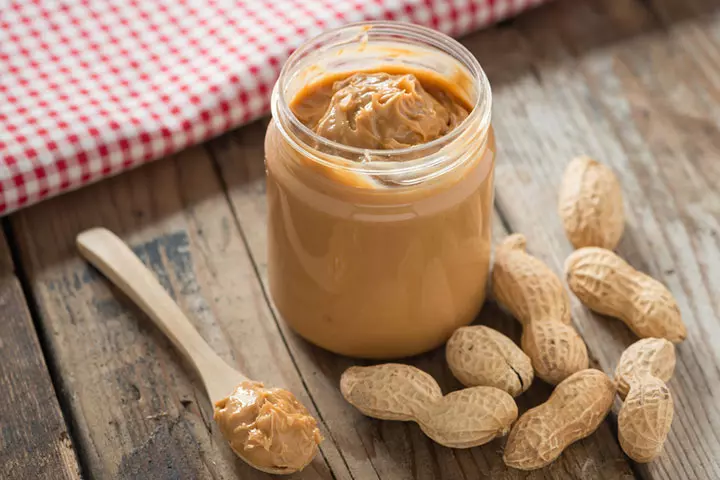
Who does not like peanut butter? It is one great food item that can add a lot of high calories to your baby’s otherwise regular foods (8).
- The peanut butter will help your baby put on that additional weight and increase the number on the scale.
- You can spread peanut butter on your baby’s toast and bagels and let him eat it as a snack.
- You can also offer peanut butter as a dip and let your baby use it with carrot sticks.
9. Nuts About Weight:
Nuts are a crunchy way to add weight and taste to any regular meal that you prepare for your baby. Before you start loading your baby with nuts, make sure you check in case there are any signs of peanut allergy in your little one (9).
- Add a variety of nuts to your baby’s daily meal plan.
- Mix up various nuts to increase your baby’s dose of vitamin E, fats, and proteins.
- Add roasted nuts to your baby’s porridge, milkshakes, smoothies, cereals, and almost any other food.
10. Go Bananas:
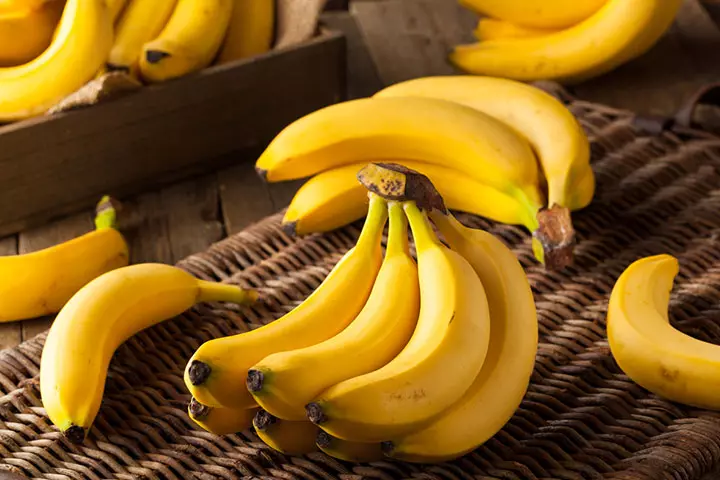
Bananas should be a regular feature in your baby’s daily meals (10).
- Bananas are loaded with energy and healthy carbs.
- You can include it in your baby’s diet as mashed banana and mix it with breast milk or formula milk, depending on what your baby has. You can also give it to your baby as it is.
- Mash banana and spread it on your baby’s toast, or add it to your baby’s cereal or porridge to make it healthier and more nutritious.
Common Food Allergens To Consider
Common food allergens include peanuts, dairy, eggs, and wheat. Nevertheless, infants can be potentially allergic to any food item. You should introduce these foods gradually around six months of age. Start with a small amount of a single allergenic food and observe for signs of allergic reactions such as hives, difficulty swallowing or breathing, and vomiting. Consult your pediatrician before introducing new foods, especially if your baby has a history of allergies in general.
High-Calorie Recipes For Babies
The following recipes contain various high-calorie foods that can help meet your baby’s nutritional needs and gain healthy weight.
Quinoa Banana Porridge
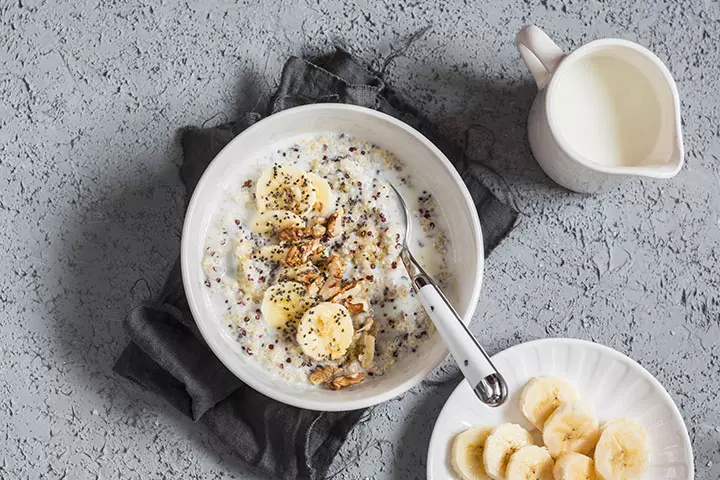
You will need:
- 1 banana
- 1 cup frozen strawberries
- ½ cup cooked quinoa
- ¼ cup almond milk
How to:
- Place banana and strawberries in the top pot of a double boiler over boiling water and steam for five minutes.
- Mash the fruit into a smooth, lump-free paste.
- Mix cooked quinoa, almond milk, and fruit paste to make the porridge.
- Put some porridge in a feeding bowl and serve to your baby warm.
Homemade Hummus
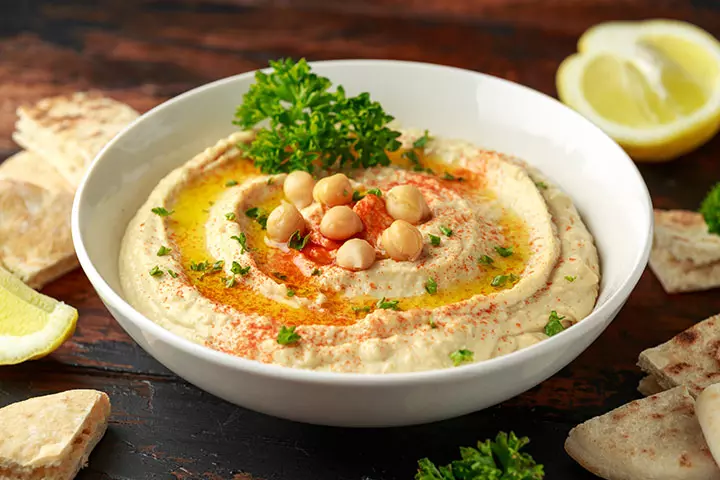
You will need:
- 240g boiled chickpeas
- 1 lemon (juiced)
- 1 clove garlic (optional)
- 2tbsp tahini (roasted sesame paste)
- 2tbsp olive oil
- 2tbsp water
How to:
- Lightly sauté the garlic in olive oil over medium flame.
- Blend chickpeas, lemon juice, garlic, tahini, and olive oil into a smooth, lump-free paste.
- Add water to adjust consistency.
- Pour the hummus into a bowl. Add a little olive oil and some oregano.
- Serve warm with thin slices of bread for the baby to practice self-feeding.
Frequently Asked Questions
1. Why is my baby not absorbing calories?
Factors such as metabolic disorders, food allergies, premature birth, gastroesophageal reflux, and breastfeeding issues may prevent babies from absorbing calories and gaining weight (15) (16).
2. How many calories should a baby eat to gain weight?
One-year-old babies may need around 900kcal daily if they have a sedentary lifestyle. However, if your child is moderately active, give them an additional 200kcal and if they are very active, consider adding 200 to 400kcal daily (17).
3. What is the highest-calorie baby formula?
High-calorie milk contains 22 or 24 calories per ounce. This milk is generally given to preterm babies. You may either buy this milk or make it at home. If you are making a high-calorie formula at home, make sure you take the exact measurements of the formula as instructed by your doctor. Alternatively, you can also make it by mixing regular formula with pumped breast milk (18).
Giving high-calorie and organic foods for babies will ensure she gains weight as required. Make sure you check with your baby’s doctor about how much weight gain is good for your baby. Refrain from force when feeding the baby.
Infographic: Tasty Finger Foods For Infants
Infants and toddlers have tiny tummies and are often fussy when eating food. You can introduce some tasty finger foods into their diet to make them get adequate calories. Here is a list of delicious and high calories finger foods you can serve your child.
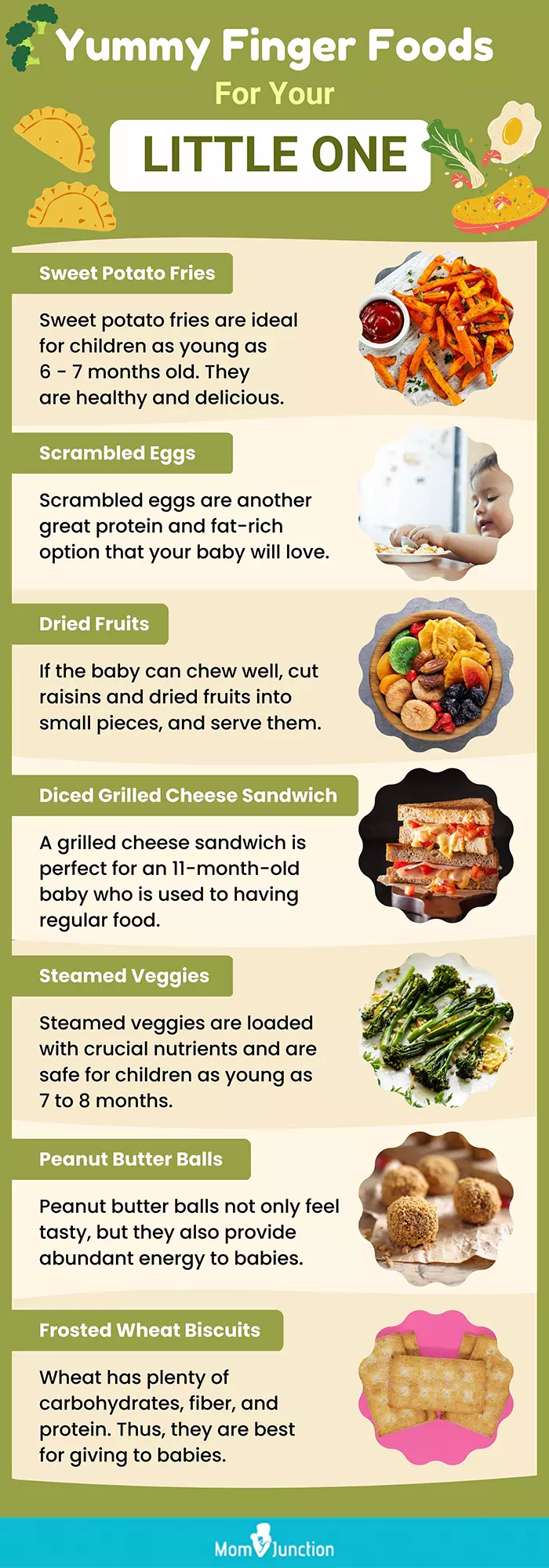
Illustration: Momjunction Design Team
Illustration: Top 10 High Calorie Foods For Babies

Image: Stable Diffusion/MomJunction Design Team
References
- Kevin B. Comerford, et al; The Role of Avocados in Complementary and Transitional Feeding.
https://www.ncbi.nlm.nih.gov/pmc/articles/PMC4882728/ - Foods to avoid giving babies and young children.
https://www.nhs.uk/conditions/baby/weaning-and-feeding/foods-to-avoid-giving-babies-and-young-children/ - Cow’s milk and children.
https://medlineplus.gov/ency/article/001973.htm - Feeding Your Toddler – Ages 1 to 3 Years.
https://my.clevelandclinic.org/health/articles/13400-feeding-your-toddler—ages-1-to-3-years - Eggs for Babies and Children.
https://www.australianeggs.org.au/nutrition/babies-and-children#:~:text=to%20Your%20Baby%3F-It%20is%20recommended%20to%20introduce%20whole%20egg%20into%20your%20child%27sbut%20not%20before%20four%20months - When should I introduce wheat into my baby’s diet?
https://www.healthychildren.org/English/tips-tools/ask-the-pediatrician/Pages/When-should-I-introduce-wheat-into-my-babys-diet.aspx - Sweet Potato Puree (Baby Food).
https://eatfresh.org/recipe/sweet-potato-puree-baby-food/ - When can I start giving my baby peanut butter?
https://www.healthychildren.org/English/tips-tools/ask-the-pediatrician/Pages/When-can-I-start-giving-my-baby-peanut-butter.aspx - Nuts, health and kids.
https://nutritionaustralia.org/fact-sheets/nuts-health-and-kids/ - Bananas.
https://nutritionsource.hsph.harvard.edu/food-features/bananas/ - Avocados, raw, all commercial varieties.
https://fdc.nal.usda.gov/fdc-app.html#/food-details/171705/nutrients - Selecting Cheese for Health.
https://extension.psu.edu/selecting-cheese-for-health - Preschoolers’ Diets Shouldn’t Be Fat-Free: Here’s Why.
https://www.healthychildren.org/English/ages-stages/preschool/nutrition-fitness/Pages/Reducing-Dietary-Fat-for-Preschoolers.aspx - Oil, coconut.
https://fdc.nal.usda.gov/fdc-app.html#/food-details/171412/nutrients - What is slow weight gain?
https://www.childrenshospital.org/conditions/slow-weight-gain-infants-and-children#:~:text=Metabolic%20disorders%20like%20hypoglycemia%2C%20galactosemia,can%20eat%20without%20feeling%20ill - Managing poor weight gain in your breastfed infant.
https://www.hopkinsmedicine.org/health/conditions-and-diseases/breastfeeding-your-baby/mismanaged-breastfeeding#:~:text=Sometimes%2C%20a%20breastfed%20baby%20will,instance%20of%20poor%20weight%20gain - Dietary Recommendations for Healthy Children.
https://www.heart.org/en/healthy-living/healthy-eating/eat-smart/nutrition-basics/dietary-recommendations-for-healthy-children - Formula or Breast Milk: How to Make High-Calorie.
http://www.hhma.org/healthadvisor/pa-forminst-pep/
Community Experiences
Join the conversation and become a part of our nurturing community! Share your stories, experiences, and insights to connect with fellow parents.
Read full bio of Jyoti Benjamin
Read full bio of Jessica Albert
Read full bio of Swati Patwal
Read full bio of Vidya Tadapatri








